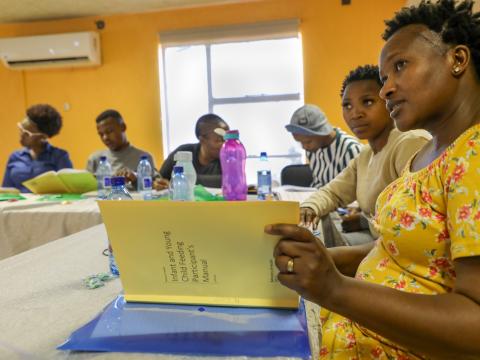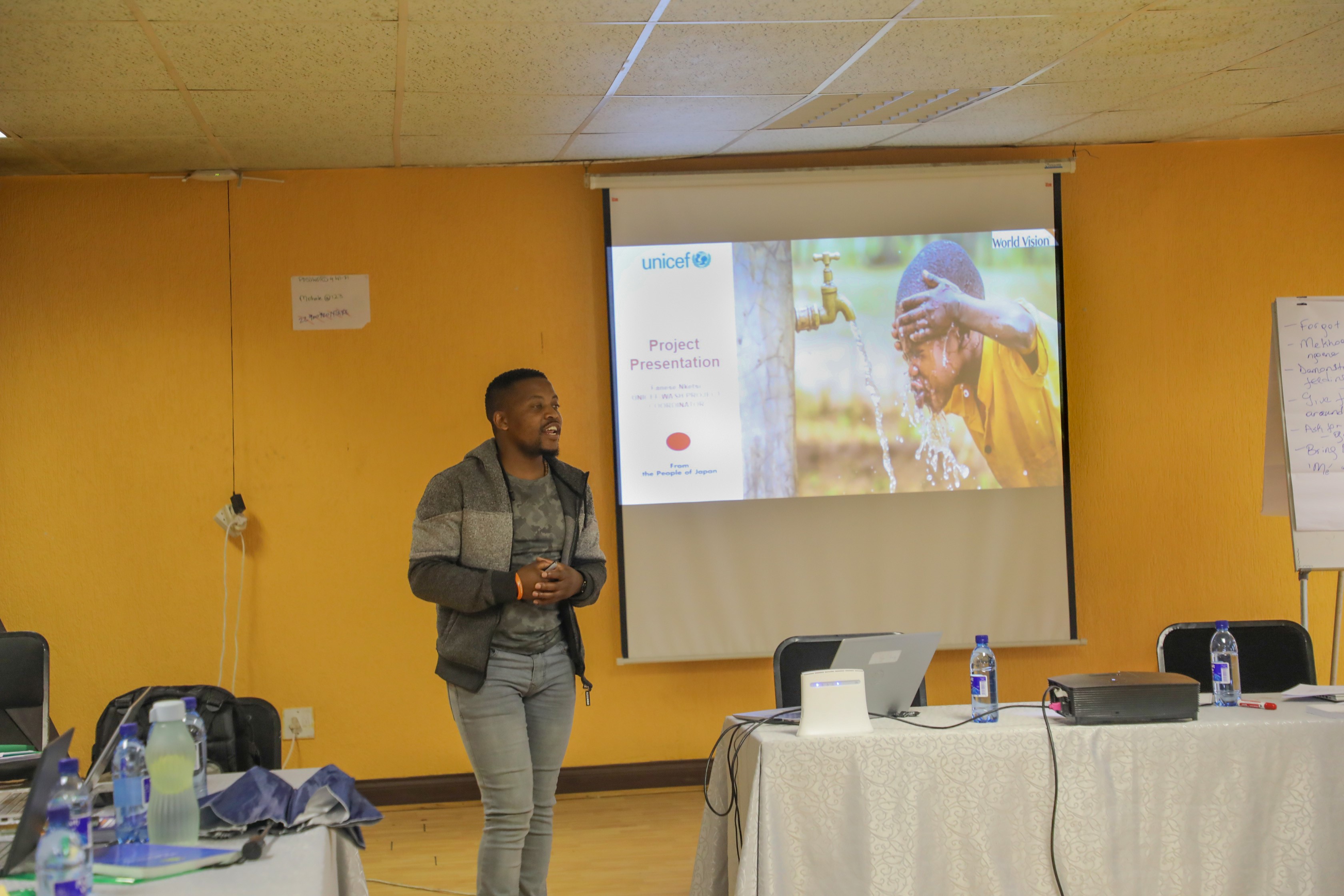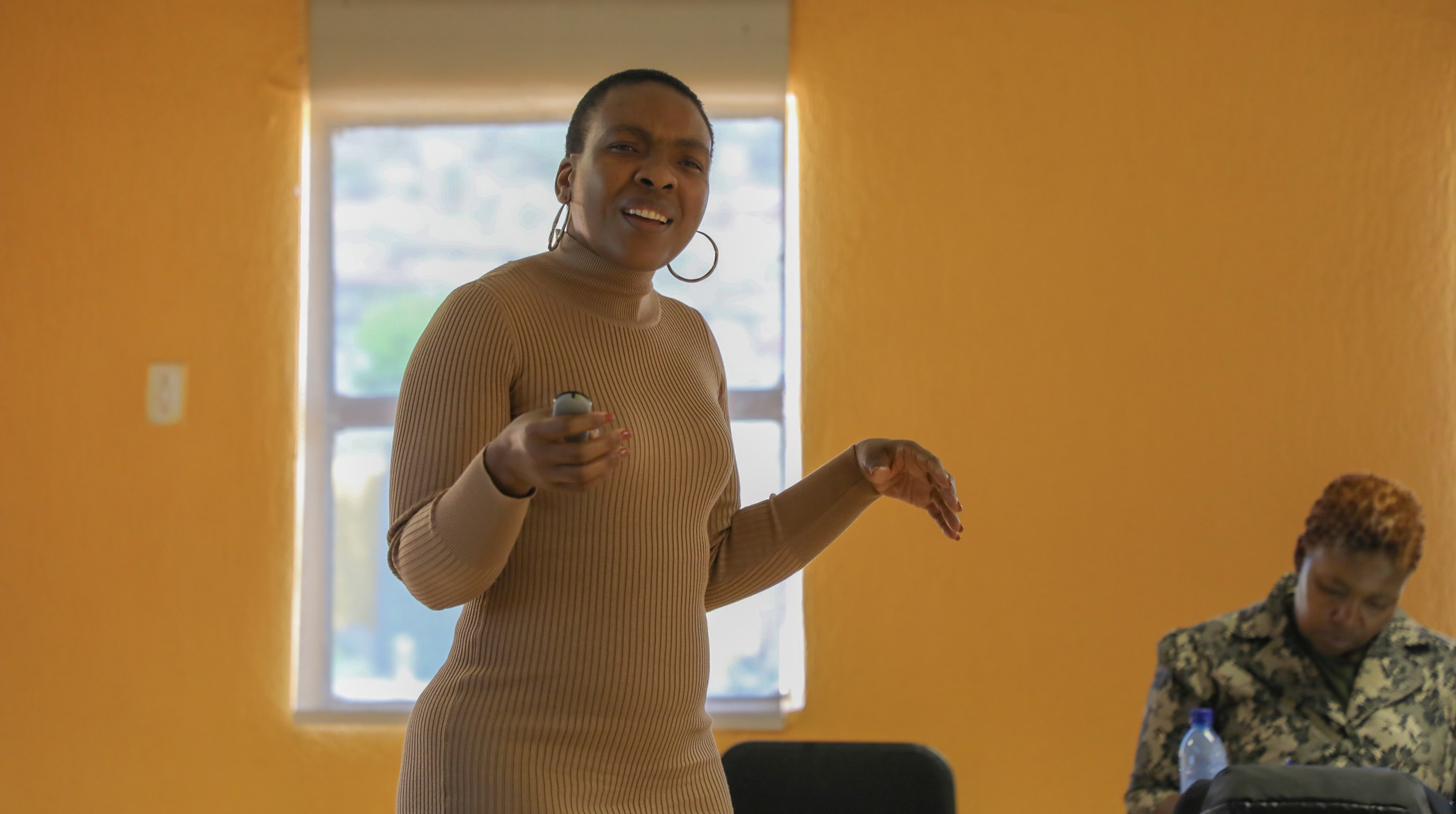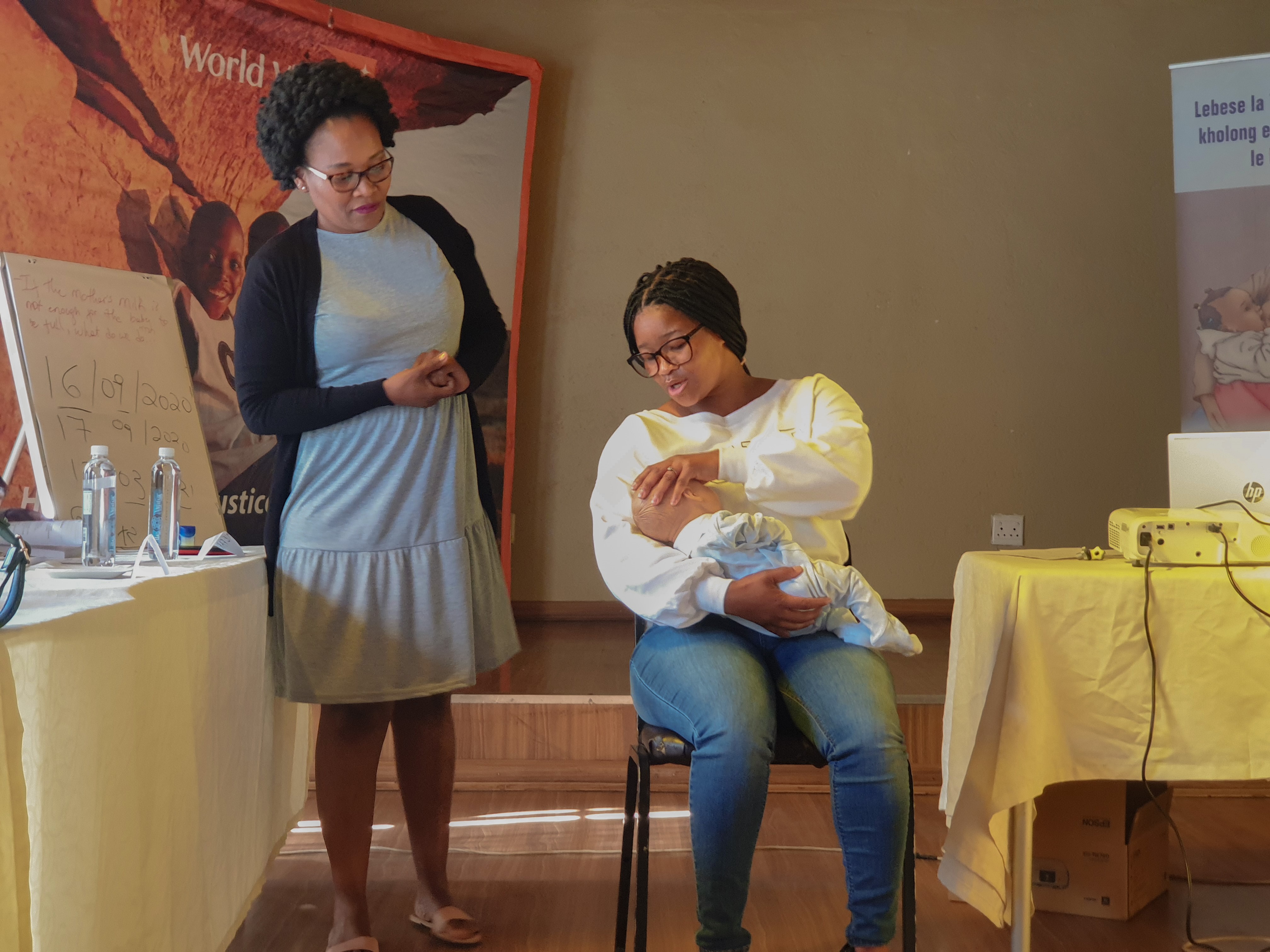Equipping Communities for Quality Maternal, Newborn, and Child Health, Infant and Young Child Feeding, and Hygiene Interventions

By: Pulane Chaka| Communications| Lesotho
As part of the ongoing project implementation to strengthen community resilience in Lesotho, we embark on a closer look of the project's transformative initiatives that focus on the critical output of "Demand For Quality Maternal, Newborn, and Child Health (MNCH), Infant and Young Child Feeding (IYCF) and Hygiene Interventions." This pivotal component of the project revolves around equipping both formal and informal service providers with essential skills in child protection, nutrition, and Water, Sanitation, and Hygiene (WASH).
The endeavor encompasses the involvement of a multitude of stakeholders, including village health workers, school boards, Water committees, WASH and Disaster Risk Reduction (DRR) clubs, and even community policing (mahokela) under the guidance of local chiefs.

Fanese Nketsi, the Project Coordinator, articulates the project's core aspiration: "Our aim is to empower communities not just to survive, but to thrive in the face of adversity. The project is about giving them the knowledge and tools they need to protect their children, nurture their health, and ensure a brighter future." Lesotho, like many regions worldwide, grapples with pressing challenges that cut across households and communities, demanding comprehensive solutions. Issues such as food insecurity, malnutrition, water insecurity, violence against children (VAC), and gender-based violence (GBV) have called for an integrated approach that transcends traditional boundaries.
Our aim is to empower communities not just to survive, but to thrive in the face of adversity.
To address these multifaceted challenges effectively, World Vision International Lesotho (WVIL), in collaboration UNICEF Lesotho , through funding from Government of Japan, has embarked on a journey to create lasting change. This journey recognizes the importance of building resilience within communities, going beyond mere aid to empower communities to take ownership of their well-being. Through education, training, and support, these communities are equipped to better cope with ongoing humanitarian shocks.

Mpai Putsoa, Health, HIV and Nutrition Technical Programme Manager, underlines the project's commitment to child well-being: "Our goal is to ensure that no child in Lesotho goes to bed hungry or malnourished. We are focused on not just feeding their bodies but nourishing their futures. Healthy children are the cornerstone of a thriving nation.” The project's implementation is strategically focused on the Thaba Tseka and Mohale's Hoek districts of Lesotho, selected based on thorough assessments of their specific needs, vulnerabilities, and opportunities.
Our goal is to ensure that no child in Lesotho goes to bed hungry or malnourished.
By concentrating efforts in these districts, the project aims to make a concentrated and sustainable impact on IYCF practices, community resilience, and overall well-being. Service providers, both formal and informal, are at the forefront of these transformative efforts in Lesotho. They share their insights and experiences;
Telang Sekautu, a Nursing Assistant at the Phamong Health Centre states that "As a village health worker, this project has given me the knowledge and skills to make a real difference. I can now pass on the knowledge I acquired to ensure proper hygiene practices, and contribute to building a resilient community to further our efforts to identify and curb malnutrition early on."
This project has given me the knowledge and skills to make a real difference.
Rosa Nkotsi, a Nursing Sister at the Mootsinyane Health Centre says that "training in child protection, nutrition, and WASH has not only enhanced my professional skills but also deepened my sense of purpose. I believe in the positive change we can create together."
I believe in the positive change we can create together.
The project's program outputs are clear, with a strong focus on achieving a demand for quality Maternal, Newborn, and Child Health (MNCH), IYCF, and Hygiene Interventions. These outputs are pursued through a range of strategic activities and training efforts, including equipping service providers, developing training manuals, community-level training, Ministry of Health staff training, judiciary and police personnel training, community gatherings, nutrition assessments, and monitoring and evaluation.

The World Health Organization (WHO) underscores the pivotal role that IYCF plays in enhancing child survival, promoting healthy growth, and supporting overall development. The first two years of a child's life are especially significant, as they lay the foundation for a lifetime of well-being. Proper nutrition during this critical period lowers morbidity and mortality, reduces the risk of chronic disease, and fosters better overall development.
UNICEF and WVIL are working determinedly to turn these principles into action. By addressing complex challenges, building community resilience, and implementing a comprehensive approach, they are sowing the seeds of a brighter future for Lesotho's children. Through their dedication, they are nurturing tomorrow and ensuring that every child has the opportunity to thrive, regardless of the challenges they may encounter.
We have ENOUGH. Let’s eliminate child malnutrition. Let’s end child hunger now. So that Every child should enjoy ENOUGH nourishing food to thrive.